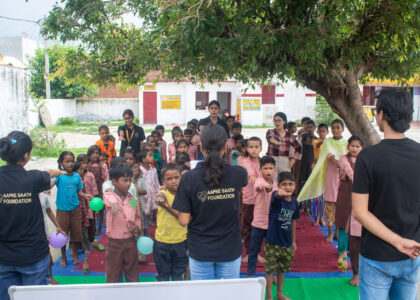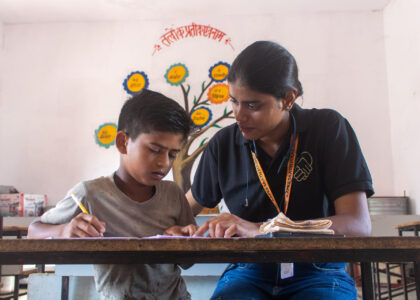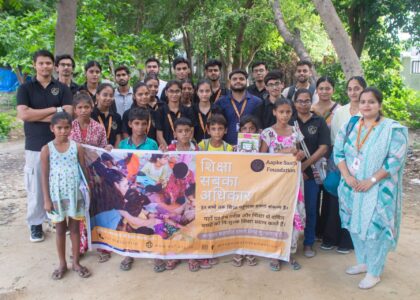Education vs. Exploitation: The Critical Choice Every Slum Child Faces
Introduction: Two Roads, Two Futures
In the slums of India, every morning brings a tough question for millions of children:
Will today be about learning or surviving?
Some children carry schoolbags. Others carry bricks, garbage sacks, or tea trays.
This silent choice between education and exploitation decides everything — their safety, health, dreams, and future.
🛑 What Is Child Exploitation?
Exploitation means using someone unfairly for personal gain. For slum children, it often shows up in the following forms:
👶 Child Labour in India
Children as young as 6 are forced to work in:
- Factories
- Tea stalls and shops
- Garbage picking and construction
➡️ Over 10 million children in India are involved in child labour.
(Source: UNICEF India)
🏠 Child Trafficking & Domestic Servitude
Some are taken away to become house help, while others face worse fates.
👰 Early & Forced Marriage
Especially for girls, child marriage ends education forever.
➡️ 1 in 4 girls in India is married before turning 18. (Source: UNICEF)
📚 Why Education Is the Ultimate Escape from Exploitation
Education does far more than teach ABCs. It becomes a shield that protects children from exploitation.
🛡️ Knowledge Is Power
A child who can read and write is less likely to be cheated or silenced.
🏫 School Provides Safety
Classrooms keep children away from hazardous jobs and unsafe streets.
🌱 Education Inspires Dreams
When a child learns, hope replaces fear.
➡️ Each extra year of schooling reduces the risk of child labour by up to 8%. (Source: ILO)
❓ Why So Many Slum Children Still Miss School
Despite free education, millions of slum children stay out of school. Here’s why:
💸 Poverty
Many families depend on the income their children earn.
🤷 Lack of Awareness
Parents may not realize how education can transform their child’s future.
🧑🏫 Unfriendly School Environment
Discrimination and untrained teachers often discourage slum children from attending.
🛣️ Unsafe Commute
Girls face safety concerns walking long distances to school.
👩 Gender Discrimination
Girls are pulled out of school for household chores or early marriage.
🚫 What Happens When Children Miss Out on Education
Children forced into labour suffer lifelong consequences:
- Poor physical and mental health
- No skills for better jobs
- Permanent poverty trap
➡️ Research shows exploited children earn 20–30% less as adults. (ILO)
✅ Proven Solutions to Keep Children in School
To help children choose education, here’s what works:
📘 Flexible Learning Options
Evening or bridge schools that fit irregular schedules
🍱 Midday Meals and Scholarships
Reduces the financial burden on struggling families
📣 Awareness Campaigns
Educating parents and communities about the benefits of schooling
🚲 Safe Transportation
Cycles, school vans, or even escorts to ensure girls reach school safely
🎨 Creative & Inclusive Education
Using storytelling, music, and drama to make learning fun and welcoming
❤️ Why This Mission Matters to Us
At Aapke Saath Foundation, every time we meet children from slum areas, we see their brilliance.
They don’t lack talent they lack opportunity.
Education should never be a privilege. It must be a pathway every child can walk towards a life of dignity, safety, and purpose.
This Choice Isn’t Theirs Alone—It’s Ours Too
Whether a slum child gets educated or exploited should not be left to chance.
It’s a decision we all influence through policy, awareness, donations, and compassion.
“If we want to reach real peace in this world, we must begin with the children.” — Mahatma Gandhi
FAQ
Due to poverty, lack of awareness, and social pressures, many slum children are forced into labour, early marriage, or trafficking instead of going to school.
Education provides skills, awareness, and safe environments that protect children and reduce their risk of exploitation.
Some major reasons include poverty, unsafe travel, unsupportive schools, and gender discrimination especially for girls.
We offer flexible classes, awareness campaigns, safe transport, and connect families with aid like scholarships and midday meals to keep kids in school.
You can donate, volunteer, or sponsor a child’s education. Even spreading awareness helps shift the conversation toward change.




